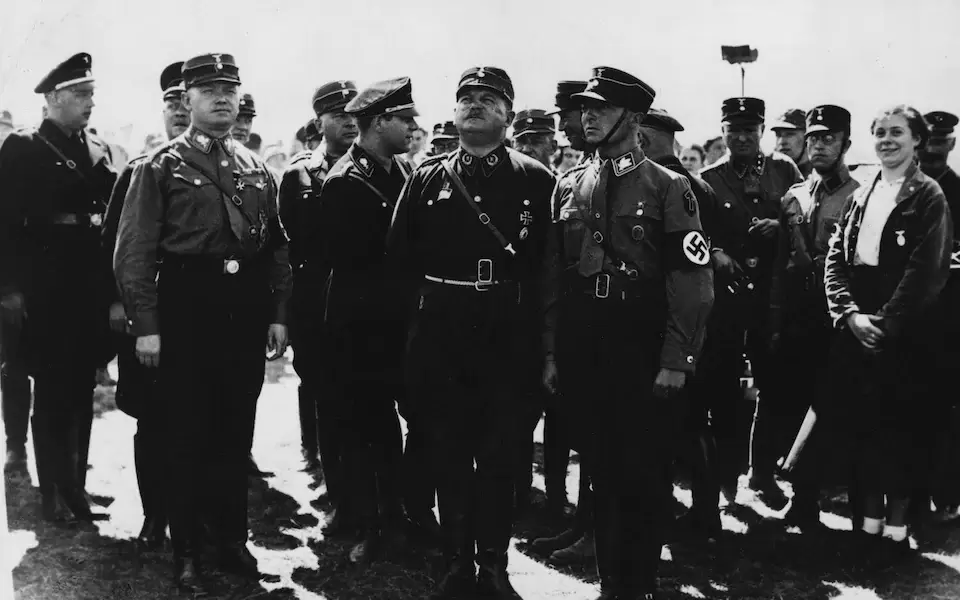|
Introduction:
The history of Germany in the early 20th century is marked by the rise of the Sturmabteilung (SA), commonly known as the Brownshirts. This paramilitary organization played a pivotal role in Adolf Hitler's ascension to power and the subsequent consolidation of Nazi control over Germany. To comprehend the significance of the SA, it is essential to explore their origins, tactics, and the profound impact they had on German society. This article will provide a comprehensive analysis, incorporating quotes from historians, as well as statistics and factual evidence, to shed light on this dark chapter in history. Origins and Purpose: Founded in 1920, the SA initially served as a protection force for the National Socialist German Workers' Party (NSDAP). Driven by radical political ideology, the Brownshirts aimed to intimidate and suppress political opponents, particularly left-wing factions. The SA provided the muscle for the Nazis, streetfighters who sought to establish their dominance through violence and intimidation. Political Violence and Street Battles: A defining characteristic of the SA was their involvement in political violence and street battles with rival groups. Engaging in brutal clashes with communists, socialists, and Jews, the Brownshirts created an atmosphere of fear and terror. According to historical records, these confrontations often resulted in severe beatings and public humiliations. The SA's violent tactics were aimed at spreading fear and establishing Nazi supremacy. The Brownshirts were notorious for their street brawls. During the elections of 1932, political violence in Germany resulted in the deaths of 431 individuals, with the SA playing a significant role in perpetrating these acts. Path to Power: As Hitler's personal paramilitary force, the SA played a crucial role in the Nazis' rise to power. Their public displays of power, organized rallies, parades, and torchlit processions left an indelible impression on the German public. At its peak in 1933, the SA had approximately 2.5 million members, making it one of the largest paramilitary organizations in history. This staggering number underscores the SA's influence and ability to mobilize a considerable force in support of Nazi objectives. The SA's organized rallies, parades, and torchlit processions to create a spectacle of power. Challenges and Internal Struggles: The SA's rapid growth and increasingly radical tendencies created internal tensions within the Nazi hierarchy. Hitler's decision to consolidate power and establish the Schutzstaffel (SS) as a rival organization led to a power struggle between the two groups. The Night of the Long Knives in 1934 witnessed Hitler's ruthless suppression of the SA, resulting in the execution of several SA leaders. This event marked a turning point as the SS emerged as the dominant force within the Nazi apparatus. The SA's influence and power were significantly curtailed thereafter. The Night of the Long Knives witnessed Hitler's ruthless suppression of the SA. Impact on German Society: The SA's role extended beyond street violence; they actively participated in the implementation of Nazi policies, including the persecution of Jews and other targeted groups. Statistics and factual evidence attest to their involvement in enforcing anti-Semitic policies. During Kristallnacht in 1938, the SA played a significant role in the destruction of synagogues and Jewish businesses. This violent pogrom resulted in the arrest and deportation of thousands of Jews. During this pogrom, around 267 synagogues were destroyed, and approximately 30,000 Jewish men were arrested and sent to concentration camps. The SA's actions, driven by their ideological fervor, contributed to the gradual erosion of civil liberties and the establishment of the totalitarian Nazi state. Conclusion: The SA, or Brownshirts, played a crucial role in Adolf Hitler's rise to power and the establishment of Nazi control over Germany. They served as Hitler's loyal enforcers, spreading fear and exerting dominance through violence and intimidation. Though eventually eclipsed by the SS, the SA's impact on German society was profound. As we reflect on this dark chapter in history, it serves as a reminder of the dangers of extremist ideologies and the destructive potential of paramilitary organizations. Written by VH Guest Blogger Ayesha Gill.
0 Comments
Leave a Reply. |
Categories
All
Archives
April 2024
|

 RSS Feed
RSS Feed